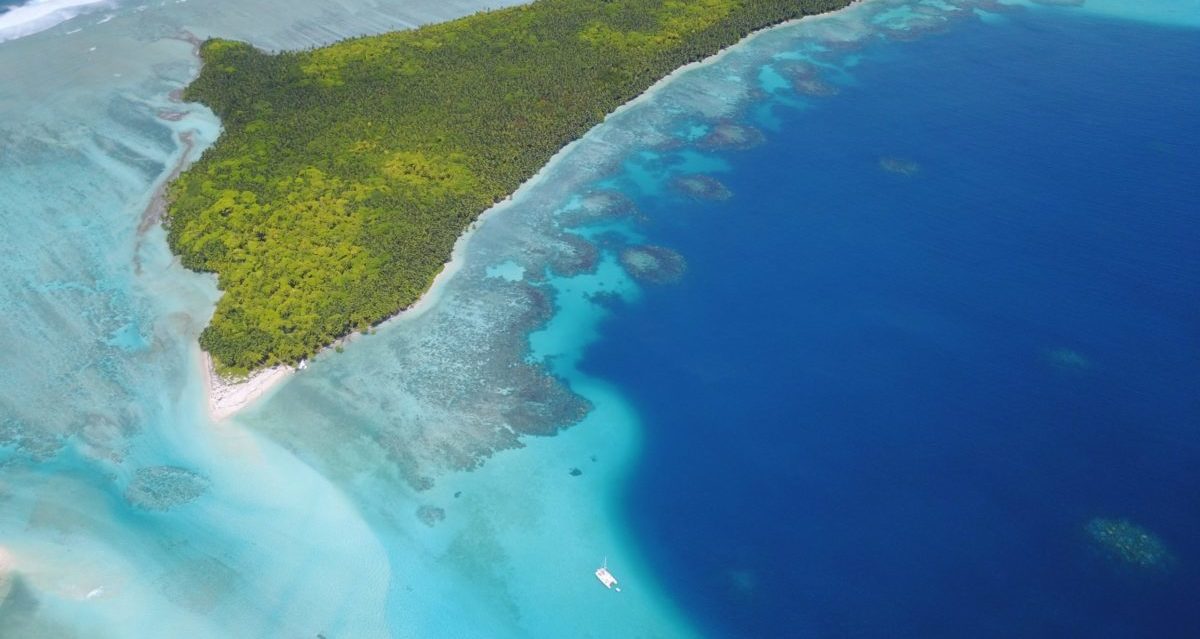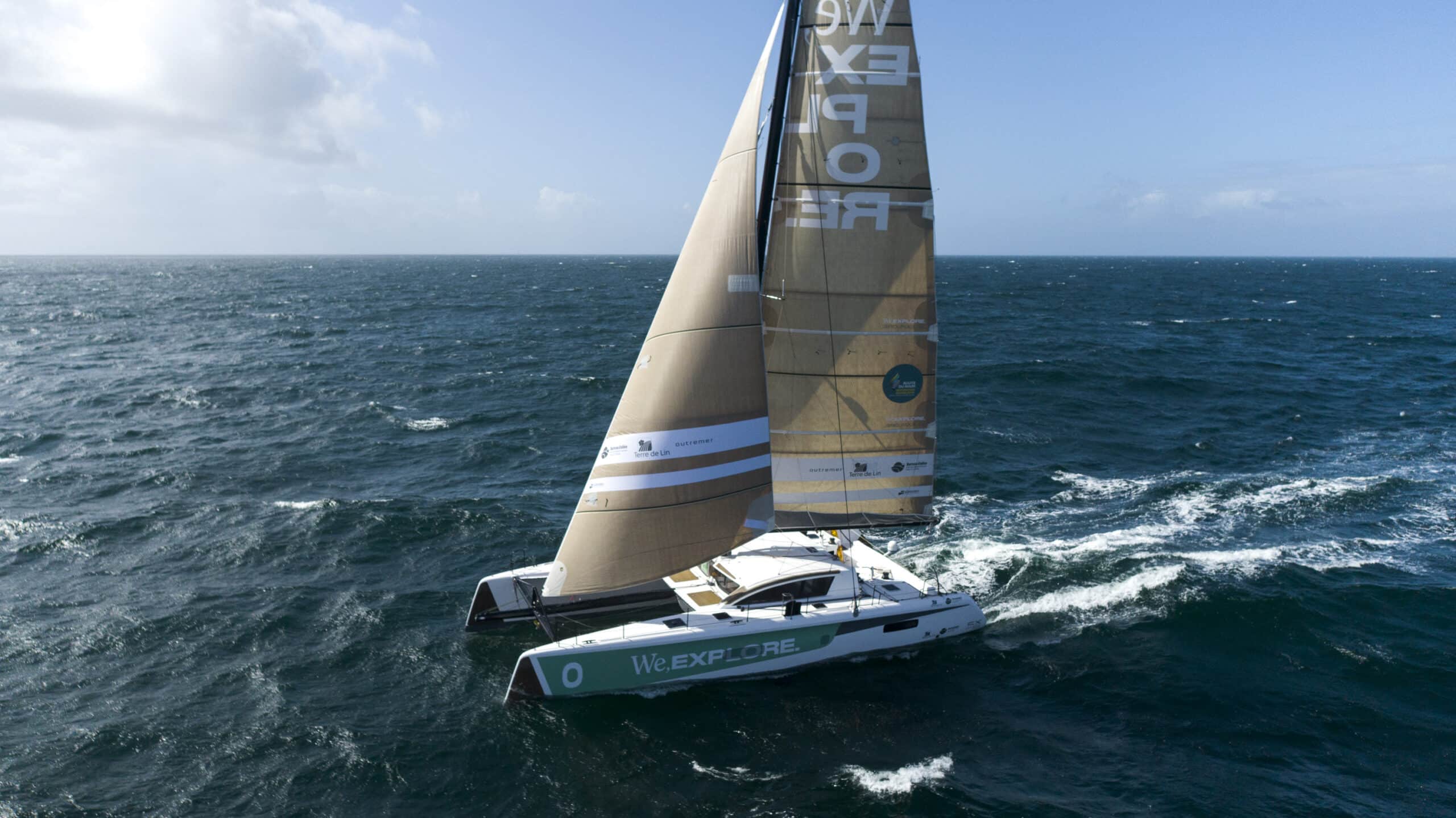
Sailing towards a sustainable future: We Explore’s ecological odyssey
Following in the footsteps of sailing legends such as Éric Tabarly, Roland Jourdain, affectionately known as ‘Bilou’, has been making a name for himself in the world of ocean racing since the 1980s. With prestigious victories such as the Route du Rhum in 2006 and 2010, Roland has not only proved his skill as a sailor, he has also forged a pioneering path towards ecological awareness in the nautical world.
Founded with his partner Sophie Jourdain Vercelletto, the Explore endowment fund symbolises this commitment. Based in Concarneau, Explore acts as a catalyst for those keen to protect our planet, offering support to the ‘explorers of tomorrow’. The We Explore catamaran was born out of this commitment, representing a manifesto of Explore’s mission: to innovate and raise awareness for a more sustainable future.
The We Explore catamaran, an Outremer 5X built at La Grande-Motte, embodies innovation with the use of 50% flax fibre in its structure, a first in the nautical industry. This choice of material is no accident, but rather a demonstration of the feasibility of eco-design in the maritime sector.
In partnership with key players such as Terre de Lin, We Explore is not just sailing; it is paving the way for sustainable practices and raising awareness through its expeditions and cooperation model. As the boat prepares to accompany Under The Pole’s DEEPLIFE expedition to the Mediterranean, it remains a symbol of what environmental commitment, combined with maritime passion, can achieve.
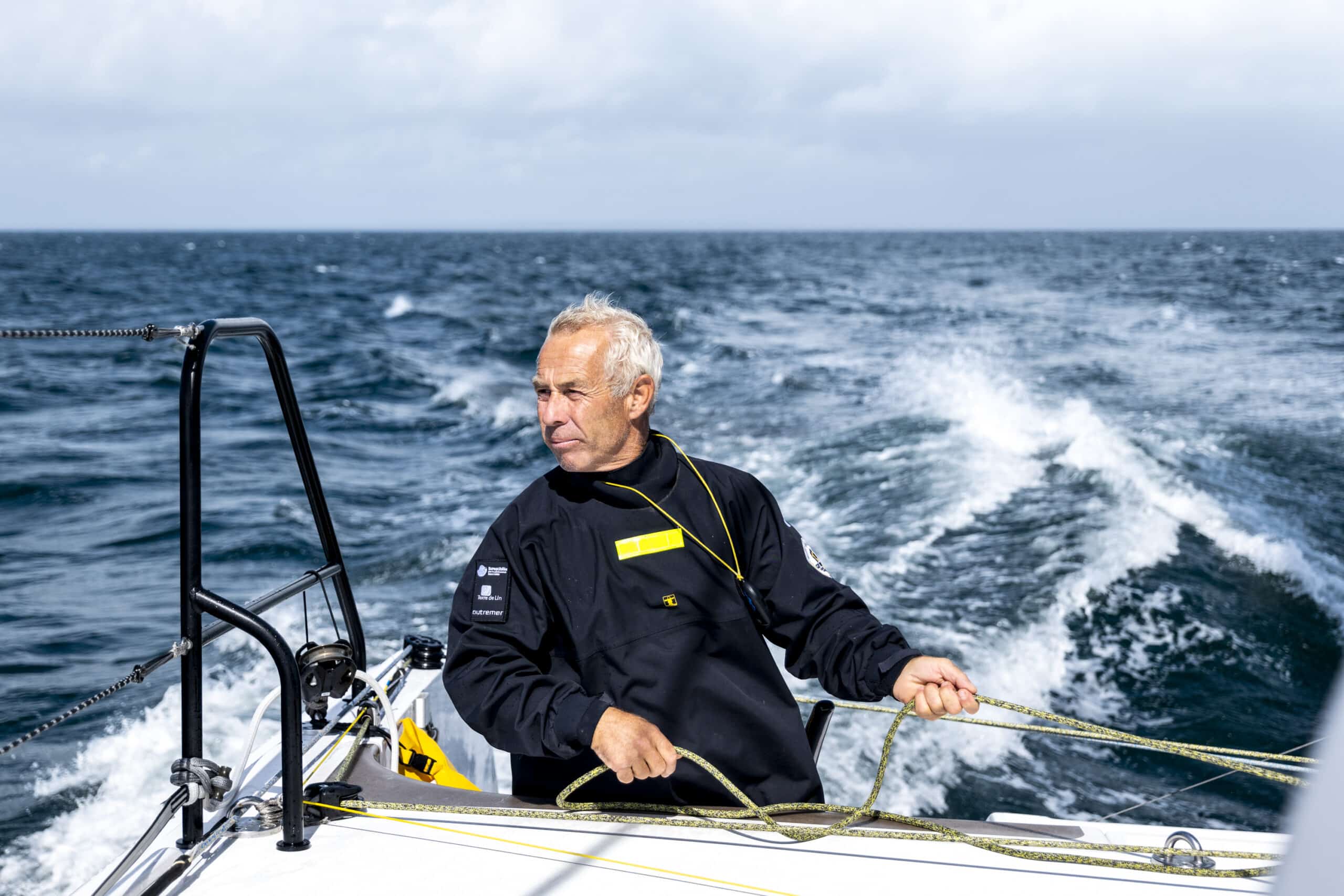
Redeveloping We Explore – Combining technology and education
The winter refit of the We Explore was recently completed! Intense work has been carried out to integrate even more linen and comfort on board this 5X! At the heart of the refit, the kitchen and bathroom were redesigned not only to improve functionality and comfort, but also to incorporate low-tech solutions aimed at reducing the catamaran’s ecological impact.
The kitchen: a space for conviviality and innovation
The transformation of the We Explore kitchen was carried out with particular attention to the sustainability of the materials used. All the furniture and furnishings were made from Kairlin, cork and wood, chosen for their low environmental impact. This approach is in keeping with a desire for material sobriety, where each element is modular and can be dismantled, making it easy to repair and recycle.
The solar oven and the Norwegian kettle allow you to cook using a minimum of external energy. This choice demonstrates Explore’s commitment to reducing energy consumption without sacrificing user-friendliness and practicality.
The Bathroom: Comfort and Ecological Awareness
In the bathroom, a closed-circuit shower has been installed, capable of recycling and filtering water, with a capacity limited to 20 litres to encourage conscious use of resources. The system is complemented by solar heating, enabling the water to be heated without excessive use of traditional energy.
Raising awareness on board: The electricity-generating bicycle
Raising awareness of energy issues is at the heart of the experience on board We Explore. A generator bike, developed by Clément Chabot of Virage Commun, has been installed to provide a tangible illustration of the amount of energy needed for everyday activities such as heating water. This educational tool allows passengers to physically feel the effort required to produce electricity, raising awareness of the impact of our consumption choices.
The DeepLife Expedition – A Renewed Commitment to Marine Preservation
After a busy winter of renovations, We Explore has headed for Greece to join the Why team from Under The Pole, already on site since February. This mission will focus its efforts on the marine animal forests located in the mesophotic zone, between -30 and -200 metres below sea level, where sunlight filters through just enough to support life. These complex structures play a key role in attenuating currents and reducing sedimentation, creating an ideal habitat for many marine species.
Exploring Marine Animal Forests (MAFs)
MAFs are oases of biodiversity that play a crucial role for many marine species. The missions during the expedition will be diverse and will include sampling, visual surveys and acoustic studies, among others. The aim is twofold: firstly, to increase scientific understanding of these critical habitats, and secondly, to help establish effective marine protection zones. These efforts are aimed at promoting international regulations to ban trawling in these fragile areas, thereby preserving the biodiversity and ecological resilience of the Mediterranean.
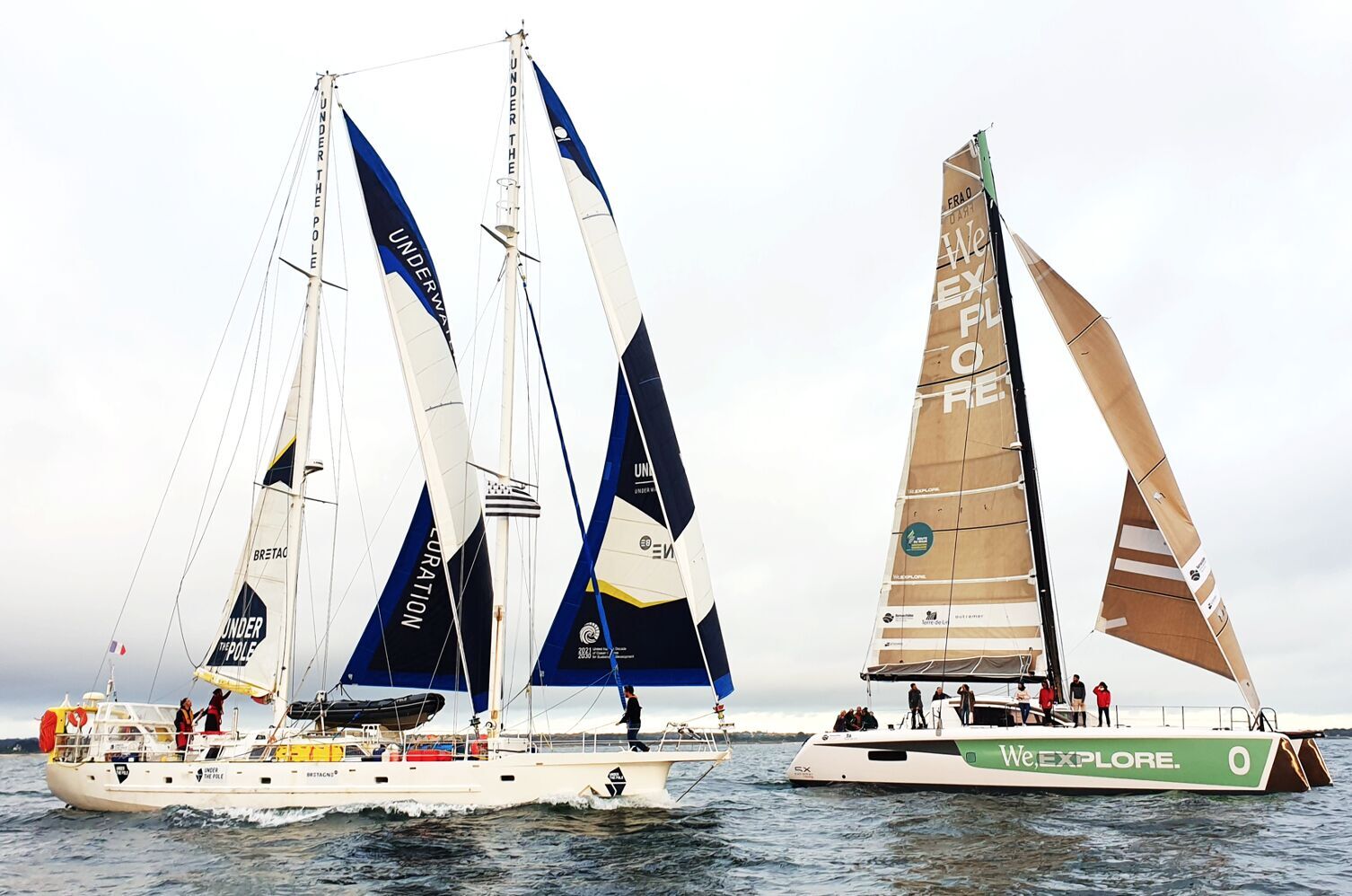
The future of We Explore
At the end of this mission in Greece, We Explore will not stop there! The Sperm Whale Expedition, which began in spring 2023, will set sail again in September 2024. This mission, carried out in collaboration with Longitude 181, the University of Toulon and the Port-Cros National Park, plays a crucial role in the preservation of Mediterranean sperm whales, a species classified as endangered. The results of this expedition could significantly influence international regulations on shipping and the protection of sensitive marine areas. They will be particularly relevant to the next United Nations Ocean Conference 2025, to be held in Nice in June 2025.
We invite everyone to follow the next adventures of We Explore and to take part, in their own way, in efforts to conserve the oceans. Together, we can make a significant difference to our blue planet.
Continue navigation
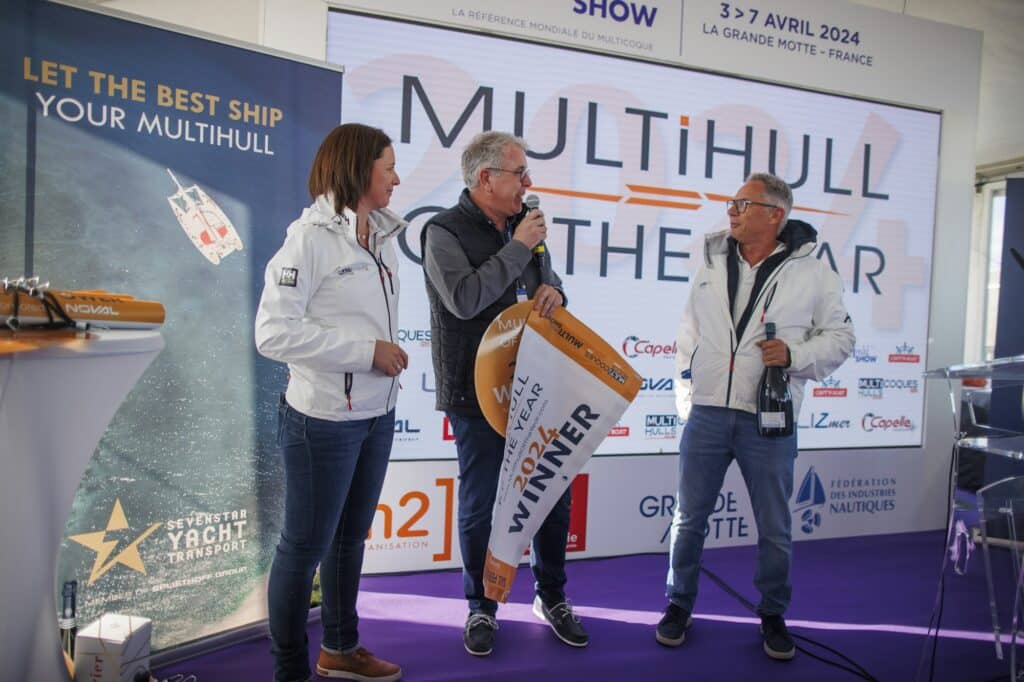
Outremer 52, a triple award winner!
Outremer 52 has just won not one, but three prestigious international awards! (We’re on the verge to get a big head!)
We began our winning streak in November 2023 with the British Yachting Award 2023, a proud moment for everyone
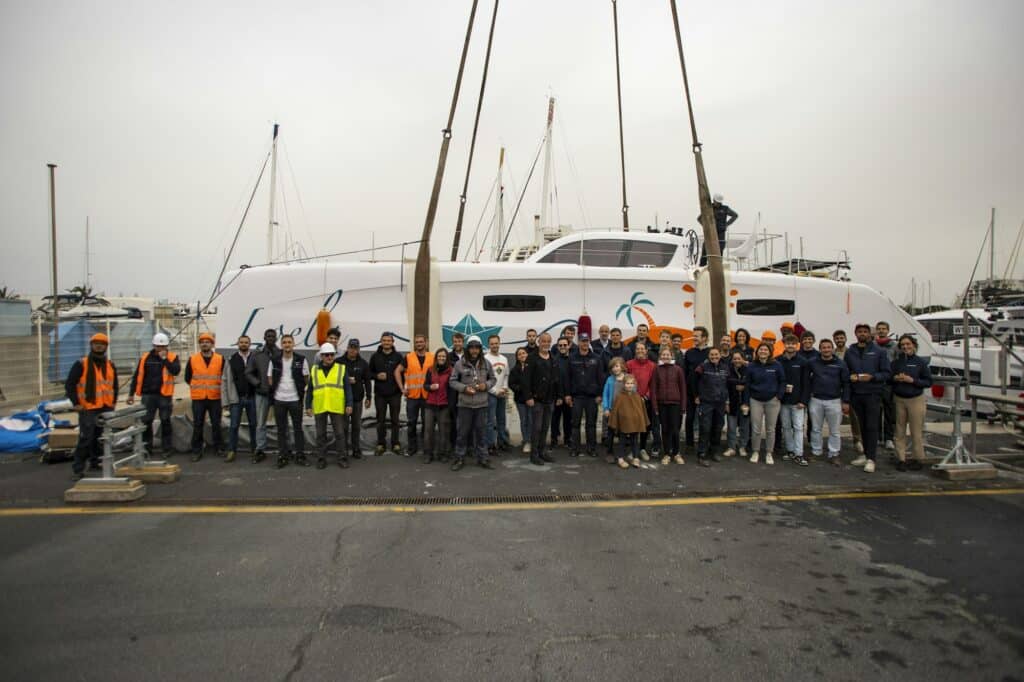
Launch of the last Outremer 45 produced at La Grande-Motte
On Monday 8 April, we launched the latest Outremer 45 to be produced in La Grande-Motte (yes, she’s moving)!
